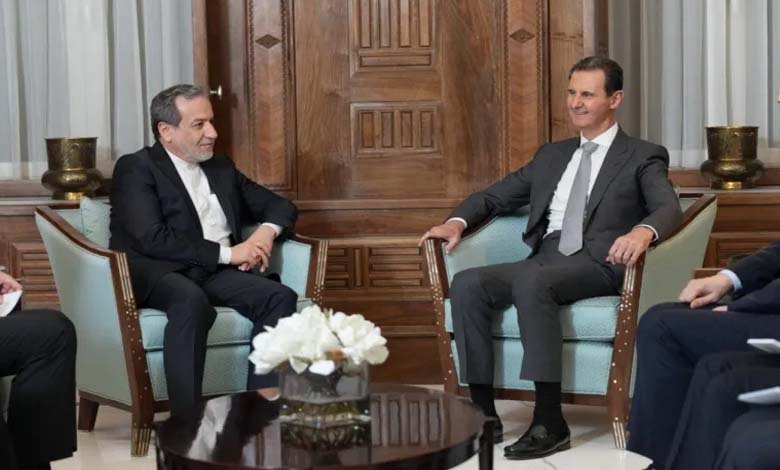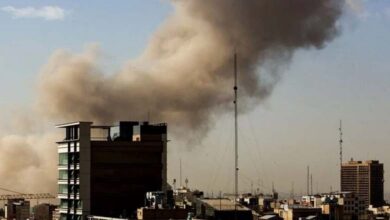Al-Assad Revealed Turkey’s Role in His Overthrow to Iran

Araghtchi expressed Tehran’s discontent over Ankara’s alignment with American and Israeli agendas, relaying al-Assad’s concerns during a tense meeting with his Turkish counterpart.
Two Iranian officials told Reuters that former Syrian President Bashar al-Assad complained to Iran’s foreign minister in the final days before his overthrow about Turkey’s strong support for opposition forces trying to oust him.
-
Russia Reduces Military Presence in Syria Following al-Assad’s fall
-
The fall of Al-Assad Sparks Political Debate in Iran
The five-decade rule of the al-Assad family ended on Sunday when the president fled to Moscow, where the government granted him asylum.
Iran had supported al-Assad during Syria’s long civil war, and his overthrow is widely seen as a major blow to the Iranian-led “axis of resistance,” a political and military alliance opposing Israeli and American influence in the Middle East.
As fighters from Hayat Tahrir al-Sham, formerly affiliated with Al-Qaeda, seized major cities and advanced toward the capital, al-Assad met with Iranian Foreign Minister Abbas Araghchi in Damascus on December 2.
-
The fall of al-Assad’s Regime: Will It Affect Russia’s Influence in the Region?
-
After Al-Assad’s Fall… Syria Closes Its Doors to the Houthis
According to a senior Iranian official, al-Assad expressed anger during the meeting over what he called intensive Turkish efforts to depose him.
The official said Araghtchi reaffirmed Iran’s support for al-Assad and promised to raise the issue with Ankara.
The next day, Araghtchi met with Turkish Foreign Minister Hakan Fidan to express Tehran’s serious concerns over Ankara’s support for the opposition’s advances.
-
“Bashar al-Assad’s Fall: The Map of Armed Groups Under the Banner of ‘Hay’at Tahrir al-Sham’”
-
Al-Assad’s Fall Weakens Iran but Doesn’t End Its Capabilities in the Middle East
“Tensions dominated the meeting,” said a second Iranian official. “Iran expressed its dissatisfaction with Turkey’s alignment with American and Israeli agendas and conveyed al-Assad’s concerns,” referring to Ankara’s support for the Syrian opposition and its cooperation with Western and Israeli interests targeting Iran’s allies in the region.
Fidan reportedly blamed al-Assad for the crisis, arguing that his refusal to engage in serious peace talks and years of oppressive rule were the root causes of the conflict.
A source in Turkey’s Foreign Ministry familiar with the talks disputed these claims, stating that they did not accurately reflect Fidan’s remarks. The source added that Araghtchi did not deliver or convey any messages from al-Assad to Ankara but provided no further details.
-
Washington Warns al-Assad against Using Chemical Weapons in Response to His Defeats
-
Al-Assad meets Khamenei and Raisi in Teheran – Details
Fidan told reporters in Doha on Sunday that the al-Assad regime had “valuable time” to address Syria’s issues but failed to do so, allowing instead for a “slow disintegration and collapse of the regime.”
Iran’s Supreme Leader Ayatollah Ali Khamenei said last Wednesday that al-Assad’s overthrow resulted from a plan by the United States and Israel.
He added that a neighboring country to Syria also played a role. While he did not name the country, he appeared to refer to Turkey.
-
Syria, Victim of its Geography: Why Does It Continue to Suffer?
-
Israel Prepares for Worst-Case Scenarios in Syria
Turkey has been a key supporter of opposition groups seeking to overthrow al-Assad since the start of the civil war in 2011.
As a NATO member, Turkey controls areas in northern Syria following several cross-border incursions targeting Syrian Kurdish units.
Al-Assad’s downfall deprives Iran and its ally, Lebanon’s Hezbollah, of a crucial partner. Tehran’s ties with Damascus allowed Iran to maintain a land corridor stretching from its western borders through Iraq to Lebanon for transporting weapons to Hezbollah.
-
From Al-Qaeda’s veil to the political shirt: Who is Abu Mohammed al-Julani?
-
Washington Follows the Events in Syria… What about “Hayat Tahrir al-Sham”?
Iran spent billions of dollars supporting al-Assad during the war and deployed the Revolutionary Guard in Syria to keep its ally in power.
Hezbollah also played a significant role, sending fighters to support al-Assad but had to recall them to Lebanon last year to face intense fighting with Israel, a redeployment that weakened Syrian army forces.











